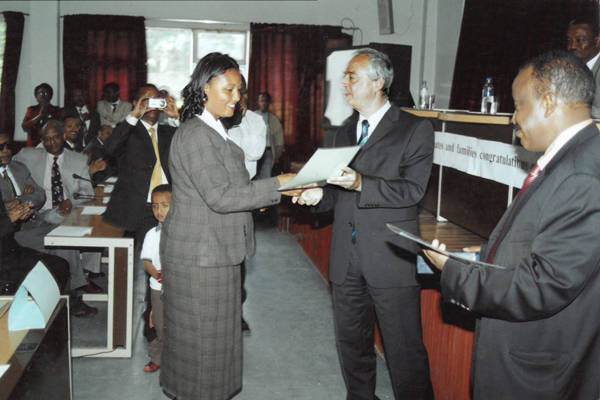
AEPICAB’s Position Statement on Capacity
Development for Africa
In the past most capacity development initiatives have often been driven by outside agencies
reflecting mainly their own priorities and assumptions. Thus, universities, development
agencies and international NGOs often provided a prescribed, one way set of technical assistance
presumed useful to and a panacea for all. These capacity building programs were not focused
on scaling up indigenous capacities and local empowerment.
AEPICAB, instead, is committed to carefully designing priorities for capacity development and to assessing the relevant factors and constraints limiting performance in direct and close collaboration with partners and stakeholders. Such proximity – capacity building is expected eventually to enable local institutions themselves to spearhead and takeover responsibility for
capacity development initiatives. In light of this, AEPICAB program activities are believed to contribute optimally and most effectively to human resource development when they are tailored to fit the needs of the recipient local institutions in question. In this manner, AEPICAB enables recipient institutions, agencies and organs to purposefully plan how optimally to enhance their capabilities of sustainable human resource development. It has been recognized that without such close partnership development would not occur sustainably. In fact, it would fail to reduce let alone eliminate, development disparities thereby perpetuating an ever-widening gap in development.
Thus, AEPICAB is committed to initially diagnose and determine the required mode of
intervention in collaboration with appropriate partners and stakeholders. Objectives are consequently well defined and work-in- progress plans and logical frameworks are developed to properly guide the implementation, monitoring, and evaluation process of capacity building projects. Thus, partnership, sustainability and correct identification of problems/ constraints will guide AEPICAB’s intervention in capacity building projects!
Assessment and evaluations of activities
Assessment and evaluations of completed capacity building projects should be carried out professionally and transparently not only to fulfil reporting obligations and accountability requirements of donors but also to ensure quality control, namely that objectives have been met and itemized resources have been properly utilized as budgeted for. More importantly, assessments must be systematically conducted so as to draw lessons from the management of implemented programs. This AEPICAB deems essential to upgrade the implementation of human resource development programs imparting greater efficiency enhanced empowerment and effectiveness.
